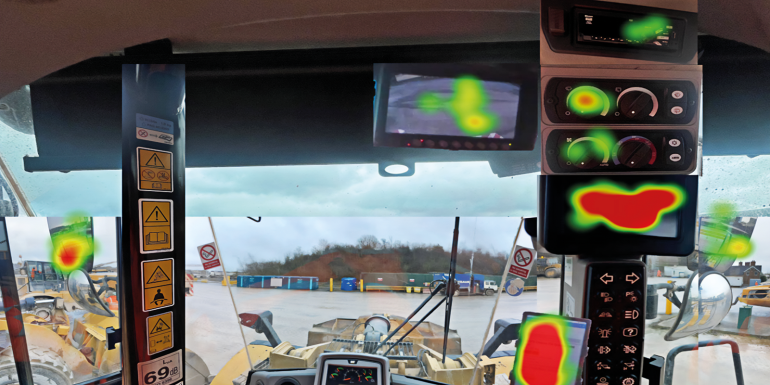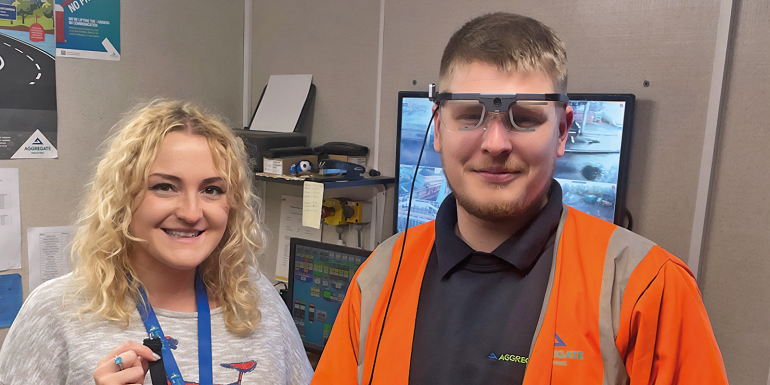The psychology of safety in construction

An example of a driver’s eye-tracking shown as a heat map
A groundbreaking project completed by Leeds Beckett University and Aggregate Industries UK is informing best practice around safety in the UK construction materials industry.
Safety Voice was a two-year Knowledge Transfer Partnership (KTP) project, part-funded by the government through Innovate UK. It aimed to reduce transport-related risk across Aggregate Industries UK’s (AIUK) 200 sites and around 3,700 employees using an innovative approach. Four research projects, including questionnaires and interviews with more than 280 drivers – plus a highly innovative eye-tracking and sleep study – has resulted in a behavioural toolkit to reduce future incidents and fatalities.
The project was led by Dr Jim Morgan, Principal Lecturer and Leader of the Psychology Applied to Safety and Health research group at Leeds Beckett. Dr Morgan explains: “We have designed and implemented a toolkit, using academic theory and models, which proactively identifies safe and unsafe behaviours within the business. This includes a step-by-step process for developing work system redesign – the way work is planned and conducted – and behaviour-change programmes. This means AIUK can fully understand the underlying factors that influence its workplace safety and put in place strategies to prevent fatalities and reduce future incidents.”

Research Manager Laura Jackson with a driver wearing eye-tracking technology
The team included Leeds Beckett psychology experts and a full-time KTP Associate Laura Jackson, who was recruited to manage the project and lead the research as a member of the AIUK team. Following the project’s completion, Jackson has secured a newly-created role at AIUK as Behavioural Safety Business Partner, leading AIUK in its journey to improve behavioural safety across the whole organisation. Jackson is also continuing to study for her Masters by Research (MRes) degree at Leeds Beckett University.
Jackson says: “The targeted and tailored safety behaviour change interventions that we have developed are not something that could be achieved by off-the-shelf consultancy services. The KTP has had a significant impact on safety culture at AIUK. I worked hard to gain the trust of colleagues and tactfully engaged stakeholders to successfully instil core values, foster collaboration and promote accountability. This has been a genuine ‘bottom-up’ approach to zero-harm strategy – and is the first step in a long-term shift in how we manage and prioritise safety in the workplace. I am now enhancing our strategic safety plan, which includes a structured approach to identifying, addressing and preventing unsafe behaviours and conditions.”
The Safety Voice Toolkit supports AIUK’s long-term aim to be the safest company in the industry and to achieve ‘zero harm’ in its workplaces. AIUK estimates that – as a direct result of the KTP – it will increase profits by £8m within the next three years due to predicted cost savings from reduced fatalities and injuries, increased productivity and reduced injury-related employee absence, as well as an increase in the number of bids won for new work.
The KTP itself has been graded ‘Outstanding’ (the highest possible rating) by independent assessors at Innovate UK and the toolkit will be shared across the UK construction materials industry to inform best practice.
Find out more about the Safety Voice project at b.link/LBU_KTP






